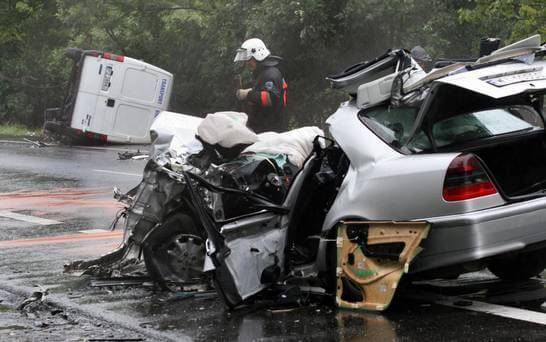Piłeś? Nie jedź! Could Ireland learn from Poland when it comes to punishing drink drivers?

Piłeś? Nie jedź!
Back in 2015, the wave of drink driving enforcement hit hard on the Polish population. As a result, it changed people's mindsets fast and as a result, the number of road fatalities rapidly dropped.For decades Poland had a terrible record on road safety with the highest death rates for traffic accidents anywhere in the European Union.
Statistically, they had 93 deaths per million persons per year compared with the EU average of 55.
Drink-driving was the biggest contributory factor to road deaths and so the authorities decided something had to be done to cut the number of people losing their lives on the country’s roads.
The nationwide crackdown was well-resourced and it became a very effective campaign in the fight against drink driving.
Almost half of all drivers in Poland were stopped and checked by police not just over a single bank holiday weekend as they do here in Ireland, not just over the course of a few weeks in a specific road campaign but for a whole year.
Between 2010 and 2015, roadside alcohol breath tests in Poland grew by 39 per cent each year. And the cops got tough in other areas, too.
A quarter of a million tickets for illegal use of a mobile phone while driving were given out between 2014 and 2015.
What that means for the Polish is, there is a 50-50 per cent chance you will get caught if you use your mobile while driving or you are under the influence of alcohol.
Along with these stringent measures, the punishments for those breaking road safety laws were hardened.
Józef, a university student in the Polish city of Lublin had this to say:
"We'd grown complacent as a country and as a population. People, especially young men, would not think twice about driving after drinking,"
"It's only in recent years that public transport has improved here - before, everyone thought they'd have to drive themselves even if they'd been drinking with their friends - and the police didn't seem to care. But over the last couple of years, things have changed. Less people are dying.
"When you drive, you often get stopped to take a breath test. It's good because lives are being saved and only the very stupid would dare drink and drive. We're learning and I think the police checkpoints are definitely working in Poland."

Now,anybody caught significantly over the drink-driving limit can expect to go to prison possible to receive a lifetime driving ban.
It wasn’t too long ago in Poland that 98 per cent of convicted drink-driving received suspended prison sentences for first offences and about 69 per cent of repeat offenders escaped prison.
Following in the footsteps of Belgium, Denmark, Finland, France, the Netherlands and Sweden, since May 2015, everyone in Poland who has a drink-driving conviction is obliged to fit an alcolock to their car, which prevents them from starting the engine if alcohol is detected on their breath. Austria will introduce it’s own alcohol interlocks programme this year.
What has been the result since the crackdown on dangerous driving in Poland? Well, between 2010 and 2016, they have managed to reduce the number of fatalities on the roads by 23 per cent.
Here in Ireland during the same period, there has been an 11 per cent reduction in road deaths due to the enforcement of the law. How many more lives could have been saved if the Gardaí actually carried out those 1 million breath tests which they said they done?
What we do need to remember in these statistics though is that Poland were late starters in the effort to reduce road death fatalities so their starting base was extremely high, hence the huge decrease.
With the support of the World Bank, Poland has developed their own National Road Safety Programme for 2013-2020 which is designed to increase road safety mechanisms around the country and help Poland reduce the number of road deaths by 2020.
Poland is still battling with the problem of road safety and has a long way to go to match the levels of safety recorded in countries such as Sweden, the UK, the Netherlands and Spain.
That being said, what Poland is doing is impressive and its success in reducing the number of fatalities on their roads is noteworthy.
To put their success into perspective, 7,901 drivers lost their lives on Polish roads in 1991 but by 2015, that figure was down to 2,928.
There is still a long way to go to reduce the carnage on the roads but with this high-enforcement approach, particularly in respect of drink-driving, it is clearly working and mindsets are changing.

Author

Justin Kavanagh
Justin Kavanagh is a recognised leader
in automotive intelligence and vehicle
data supply to the entire motor industry.
He has almost 20 years experience in
building systems from the ground up.
As the Managing Director of Vehicle
Management System, he understands the
need and importance of trustworthy and
reliable vehicle history and advice to
both the trade and the public.
Follow me on LinkedIn